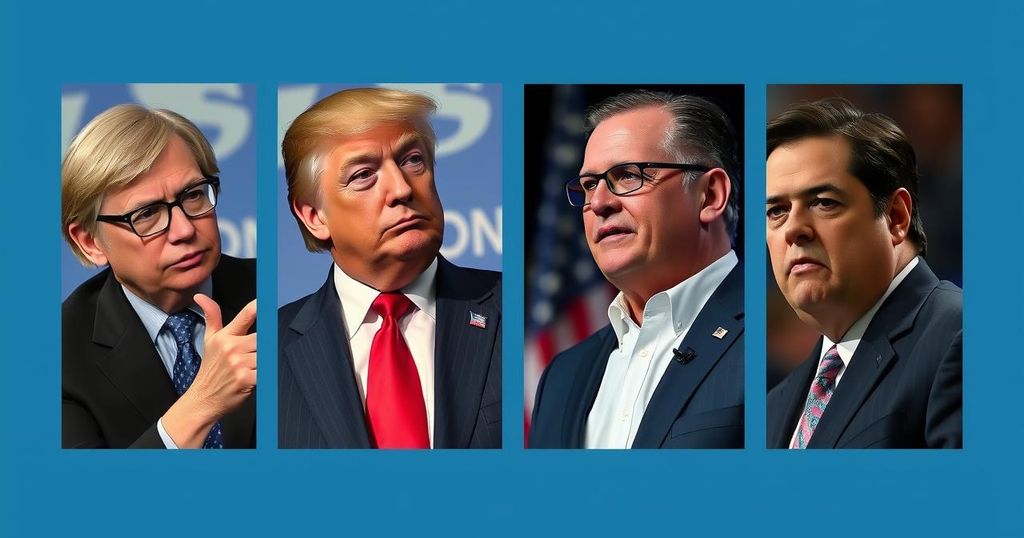Global Voter Discontent in 2024: A Year of Incumbent Defeats and Political Upheaval

In 2024, voters in 70 countries showed discontent towards their governments by removing many incumbents from power, driven by economic challenges and global instability. Political upheaval characterized many elections, leading to notable losses for long-standing governing parties and an increase in support for populism and the far right. Conflicts over electoral integrity and dissatisfaction with democratic processes marked a turbulent year, foreshadowing continued instability into 2025.
In 2024, voters across 70 countries, representing half of the world’s population, expressed discontent towards their governments, often by removing incumbents from power. This sentiment arose in nations like India, Japan, France, and the United States, where citizens, frustrated by economic challenges and instability, opted for change, sometimes selecting unconventional candidates. The political landscape witnessed increased volatility, highlighted by mass protests and significant electoral disruptions in various regions.
The year was marked by substantial electoral upheaval, culminating in incumbent losses in numerous countries. Political scientist Rob Ford attributed this widespread discontent to “electoral long COVID,” a term referring to the prolonged backlash from COVID-19-related social and economic challenges. High inflation, largely driven by the geopolitical aftereffects of the Ukraine invasion, compounded feelings of unease among voters worldwide. The African National Congress in South Africa, which had held power since apartheid, faced a dramatic downturn in support, necessitating a coalition with opposing parties after decades of governance.
Moreover, elections in countries such as Senegal, Ghana, and Botswana saw long-standing ruling parties ousted, underscoring a broader trend of political dissatisfaction. In India, Prime Minister Narendra Modi’s party unexpectedly lost majority control, illustrating the shifting currents of political power. Similar political upheavals occurred in Japan, where the ruling Liberal Democratic Party lost significant ground amid public frustration regarding financial scandals.
European nations also experienced a rise in right-wing populism, disrupting traditional party dominance. In the EU, the National Rally party made a strong showing in France, though tactical voting ultimately prevented a major takeover. Concurrently, Austria experienced a conservative defeat at the hands of the far-right Freedom Party. Each election cycle revealed increasing challenges faced by incumbent leaders, with populism gaining traction alongside demands for accountability.
However, the global political environment faced additional threats from external interference and misinformation. Notably, Meta reported dismantling multiple covert influence campaigns linked to countries including Russia and Iran, reflecting growing concerns about the integrity of electoral processes. Furthermore, allegations of electoral malfeasance arose in Romania, as the Constitutional Court canceled a presidential runoff amid influencing accusations, revealing the precarious balance between democracy and manipulation.
As 2024 concluded, uncertainty reigned in many regions, particularly with the U.S. presidential election yielding Donald Trump’s return to power, raising alarms internationally regarding future foreign policy directions. Political instability has persisted in nations like Venezuela and Mozambique, where ongoing conflicts and electoral disputes prompted public unrest and turmoil.
Looking forward, projections indicate that 2025 may mirror the turmoil witnessed in the preceding year, with several incumbent leaders facing threats to their authority across various countries. Experts suggest that inquiries into democratic satisfaction remain high regardless of the systemic failures people observe.
As Seema Shah noted, “People want democracy. They like the theory of it, but when they see it actually play out, it is not living up to their expectations,” highlighting the disconnect between democratic ideals and practical governance. This sentiment encapsulates the broader global apprehensions towards the state of democracy in an increasingly complex political landscape.
The 2024 election cycle marked a significant turning point for several nations, revealing a widespread trend of voter discontent aimed at incumbent politicians. This upheaval can be largely attributed to lingering societal and economic consequences of the COVID-19 pandemic, exacerbated by inflation and global conflicts. As voters reacted against their governments, a notable rise in populism and the far right characterized electoral outcomes in many regions, contributing to a fraught atmosphere of political instability.
The 2024 elections underscored a notable shift in voter sentiments toward incumbents globally, fueled by economic hardships and dissatisfaction with governance. These elections led to widespread changes in political leadership, with many long-standing parties being ousted. The implications of these electoral upheavals suggest a continued struggle for democratic ideals in the face of external interference and internal discontent, anticipating a turbulent political landscape into 2025.
Original Source: www.pbs.org







